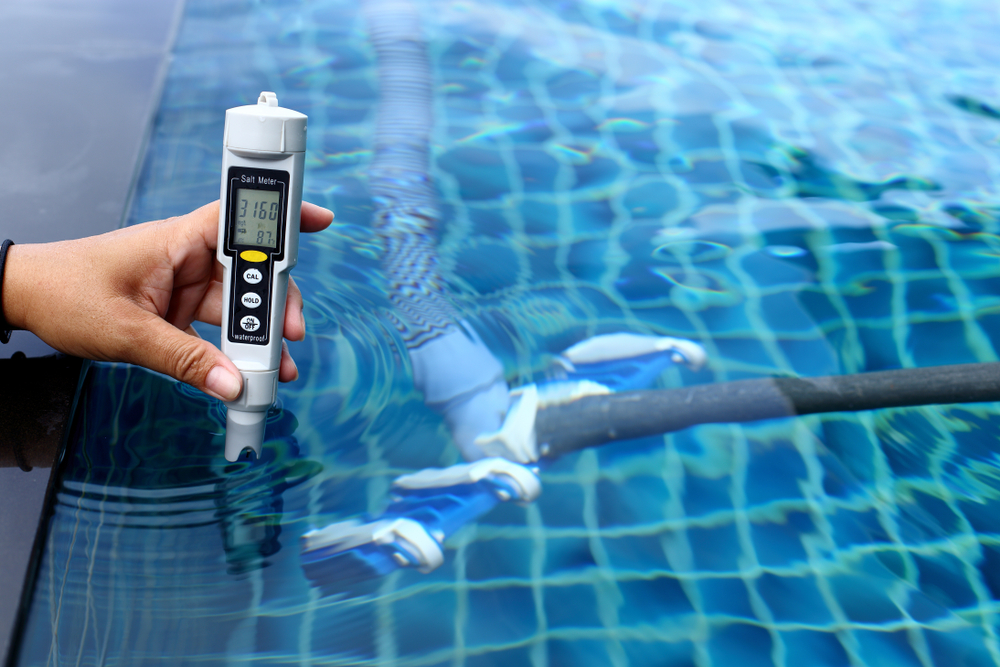

Keeping your pool water clean and clear is crucial, not just for aesthetic reasons, but also to ensure the health and safety of everyone who takes a dip.
Choosing the right sanitizer between bromine and chlorine can significantly affect both the quality of your pool water and the comfort of your swimmers.
Each chemical has unique benefits and drawbacks, influenced by factors like pool usage, budget, and personal sensitivity. Let’s dive deeper into the differences to help you make the best choice for your swimming pool.
Understanding Chlorine and Bromine
Chlorine is the most popular choice for pool sanitization. It’s prized for its efficiency in killing bacteria and algae, available in various forms such as liquid, granules, and tablets.
These options provide flexibility in how they can be administered, whether automatically through a dispenser or manually.
Bromine is chemically similar to chlorine but boasts greater stability under high temperatures and varying pH levels.
This characteristic makes bromine ideal for hot tubs and indoor pools where environmental conditions are more controlled and consistent. Bromine is generally supplied in tablets or sticks, which are used in a feeder to ensure steady dissolution.
The Pros and Cons of Chlorine
Advantages
Cost-Effective: Chlorine is less expensive than bromine, making it an economical option for large outdoor pools that require significant amounts of sanitizer.
Fast-Acting: Its rapid action against contaminants is vital for maintaining safe swimming conditions, especially in pools that see a lot of use.
Availability: Chlorine’s popularity ensures it is widely available in various concentrations and formats to suit different pool systems and owner preferences.
Disadvantages
Irritation: Chlorine can cause skin and eye irritation, particularly in higher concentrations. This can be uncomfortable for swimmers and may discourage pool use.
Maintenance: It breaks down quickly in sunlight, necessitating frequent monitoring and adjustment of pool chemistry, which can be a hassle for pool owners.
Strong Odour: Chlorine has a potent smell that is often associated with public swimming pools; it can linger on skin and swimsuits, and be unpleasant for sensitive individuals.
The Pros and Cons of Bromine
Advantages
Gentler on Skin and Eyes: Bromine is typically less irritating than chlorine, offering a softer experience, which is crucial for pools used by children or individuals with sensitive skin.
Stability: Its chemical stability in various conditions means less frequent adjustments are needed, saving time and potentially reducing chemical costs over time.Less Odour: Bromine’s lower volatility results in a much less noticeable smell,
enhancing the comfort of indoor environments and enclosed spaces.
Disadvantages
Higher Cost: Bromine can be significantly more expensive than chlorine, which might be prohibitive for pool owners operating within a tight budget.
Slower Reaction Time: It reacts more slowly with contaminants, which can be a disadvantage in pools with high swimmer loads or those susceptible to rapid contamination.
Handling and Dosage: Overdosing a pool with bromine is easier than with chlorine, which can lead to excessively soft water that adversely affects the pool infrastructure and swimmer comfort.
Factors to Consider When Choosing Between Bromine and Chlorine
Pool Type and Location: Chlorine’s resilience to UV light makes it suitable for outdoor pools, whereas bromine is better suited for indoor or shaded pools where UV exposure is minimal.
Temperature: Bromine maintains its sanitizing power at higher temperatures, making it the preferred choice for hot tubs and heated pools where chlorine would dissipate quickly.
Usage Frequency: For pools that are in constant use, chlorine’s ability to quickly sanitize large volumes of water makes it the practical choice.
Budget Constraints: If initial and ongoing costs are concerns, chlorine offers a more cost-effective solution, especially for larger pools.
Sensitivity Concerns: For facilities that cater to individuals with sensitive skin or eyes, or for family pools where children are frequent swimmers, bromine’s milder nature might be the deciding factor.
Final Thoughts
The choice between using bromine or chlorine depends on multiple factors, including your pool’s specific needs, the usual pool traffic, and even your local climate.
Experimenting with both chemicals under different conditions can provide practical insights into which sanitizer works best for your pool.
Additionally, consulting with pool maintenance experts can offer tailored advice that considers all aspects of your pool’s operation.
Ultimately, whether you choose bromine or chlorine, the goal is to maintain a clean, healthy, and enjoyable swimming environment.
By carefully weighing the pros and cons of each sanitizer, you can ensure your pool remains a delightful retreat for all swimmers throughout the swimming season.